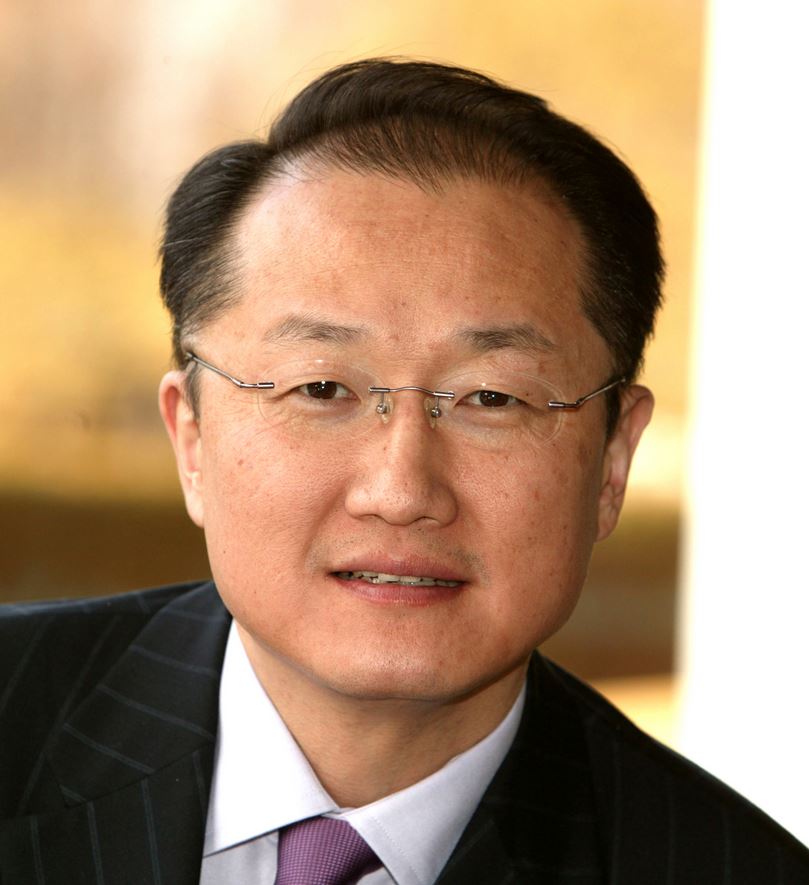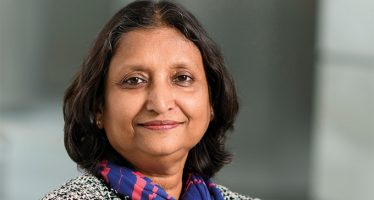The International Financial Institutions: Collaboration for Development and Growth

Jim Yong Kim
Leaders of the African Development Bank, European Bank for Reconstruction and Development, Inter-American Development Bank, International Monetary Fund, and the World Bank Group pledged on February 26, 2013 close collaboration to support development and growth.
The leaders emphasized the need for coordinated efforts to achieve the Millennium Development Goals by 2015, which aim to end poverty and hunger, increase access to education and health care, improve gender equality, and ensure environmental sustainability.
“Nothing could be more important than ensuring young people get the right start in life. We aim to make 2015 the year in which children no longer negotiate access to basic education, mothers to the most basic health care, households to water and sanitation, or girls to the most fundamental opportunities for schooling, work, or voice in their communities. And we aim to ensure these gains are permanently sustained in the post-2015 era” said Donald Kaberuka, President of the African Development Bank.
The leaders pledged strong support for and collaboration with the UN-led process of defining the Post-2015 Development Framework. They voiced support for an approach that integrates concepts of economic, social and environmental sustainability. Noting that even recent gains in social indicators are at risk in the absence of a long term financing plan, leaders pledged to work together to develop options for long term investment to strengthen the foundations of growth. They called for a renewed focus on financing for development – with greater leveraging of official development assistance and private sector investment, as well as better domestic resource mobilization and management and stronger institutions. They pledged cooperation to build the statistical capacity of governments, to enable better policies, for example by deploying the latest techniques for monitoring poverty and inequality, and factoring natural wealth accounting into decision making.
“We are at a critical time where working together, we can bend the arc of history – eliminating absolute poverty, boosting shared prosperity, and defining a pattern of growth that demonstrates that we care for our planet and all its people”
– Jim Yong Kim, President of the World Bank Group.
“In these tough economic times, we’ll only reach our goals by pulling together. We will work with a wide variety of partners to reach our goals, thoughtfully and creatively. Civil society, business, and government need to think and work together. Our institutions aim to create an atmosphere for open dialogue and imaginative solutions to emerge” added Luis Alberto Moreno, President of the Inter-American Development Bank.
Issues of inclusive growth, environmental sustainability, and long term financing are global in nature. They affect richer and poorer countries alike. Recognizing this, the leaders of the Institutions welcomed the G-20 and G-8 analysis of related issues, and committed to harnessing their own institutions’ analytical and convening power to identify solutions to such pressing global issues, and making developing country issues thoroughly and clearly understood.
“Recent economic crises, which have put so many people at a risk of falling into poverty, mean we need to do more to promote macroeconomic stability, and to build strong and transparent financial systems. The very large gaps in development finance mean we’ll need to search for ever better ways to encourage investment, including building more resilient and effective financial systems to support more effective domestic resource mobilization and management” said Min Zhu, Deputy Managing Director of the International Monetary Fund.
The leaders committed to excellence in management and organization of their own institutions. In this respect they shared experiences with organizational change, and reiterated their commitments to the highest standards in serving clients, excellence in staffing and professional development, and collaboration on the ground among the Institutions.
“The development challenges we face at the global and national levels are of such scale that we must work together. It’s not only a question of financial resources, but of ensuring we can deliver the best available knowledge, best people, and best models of cooperation to our clients. They expect nothing less, and we aim to deliver nothing short of their expectations” said Suma Chakrabarti, President of the European Bank for Reconstruction and Development.
You may have an interest in also reading…
Anshula Kant, MD and CFO of the World Bank Group: Power of Capital Markets in the Battle Against COVID-19
Managing Director and World Bank Group CFO Anshula Kant reflects on the crisis engulfing the world, and the opportunities we
The Billionaire Hand-Me-Downs: What the Great Wealth Transfer Means for the World
As the wealthiest and oldest prepare to pass on their fortunes, the implications for the global economy are profound. Will
Brazilian Investor Relations Institute (IBRI): Access to International Capital Markets
Connecting Brazilian Investor Relations (IR) professionals with global capital markets is a key objective for IBRI (Brazilian Investor Relations Institute).

















































































